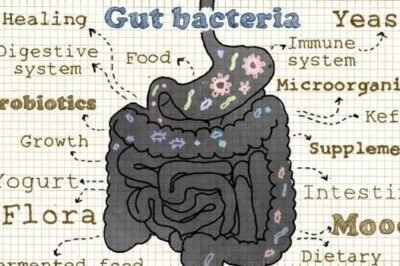A gut cleanse is a method aimed at improving gut health by removing toxins and balancing the digestive system. The gut plays a crucial role in overall well-being, affecting everything from digestion to immunity. By cleansing your gut naturally and safely, you can boost digestion, reduce bloating, and improve nutrient absorption. In this article, we’ll explore the benefits of gut cleansing and provide practical tips on how to perform it without compromising your health.
Why a Gut Cleanse Is Important
Your gut is home to trillions of bacteria, both good and bad, that play a vital role in digestion and immune function. However, poor diet, stress, and environmental toxins can disrupt this balance, leading to bloating, fatigue, and digestive issues. A proper gut cleanse helps restore this balance, flushing out harmful toxins and fostering a healthy environment for beneficial bacteria to thrive.
How to Do a Gut Cleanse Safely
Performing a natural gut cleanse doesn’t mean you need to rely on harsh laxatives or extreme fasting. In fact, the best methods involve making sustainable, healthful changes to your diet and lifestyle.
1. Increase Fiber Intake
Fiber acts like a broom for your digestive system, helping to sweep out toxins and waste. Eating fiber-rich foods such as fruits, vegetables, and whole grains supports healthy bowel movements and promotes the growth of beneficial gut bacteria.
2. Hydration is Key
Drinking plenty of water is essential for any detox for digestion. Water helps flush out toxins from the digestive tract, keeps the intestines lubricated, and aids in nutrient absorption. Aim to drink at least eight glasses of water per day, and consider herbal teas like peppermint or ginger for added digestive benefits.
3. Add Probiotics and Prebiotics
Probiotics are “good” bacteria that improve gut health, while prebiotics serve as food for these bacteria. Including both in your diet can foster a balanced microbiome. Foods like yogurt, kefir, sauerkraut, and kimchi are rich in probiotics, while garlic, onions, and bananas are great sources of prebiotics.
4. Avoid Processed Foods
Processed foods high in sugar and unhealthy fats can disrupt the gut microbiome and contribute to digestive problems. During your cleanse, opt for whole, unprocessed foods that are easier on your digestive system. Incorporating gut detox foods like leafy greens, berries, and avocados will help maintain a healthy digestion routine.
5. Try Intermittent Fasting
Giving your digestive system time to rest can be beneficial for gut health. Intermittent fasting, where you cycle between periods of eating and fasting, gives your body the opportunity to focus on detoxifying and repairing the digestive system. Start with a simple 12-hour fast, including the time you spend sleeping, and gradually increase if it suits your body.
FAQs
Q: How often should I do a gut cleanse?
A: It’s best to perform a gut cleanse 1-2 times a year, but always prioritize a healthy, balanced diet for daily maintenance.
Q: Can a gut cleanse help with bloating?
A: Yes, a gut cleanse can reduce bloating by removing excess waste and promoting healthy digestion.
Q: Is fasting necessary for a gut cleanse?
A: Fasting is not necessary, but intermittent fasting can give your digestive system a break and promote detoxification.








Leave a Reply